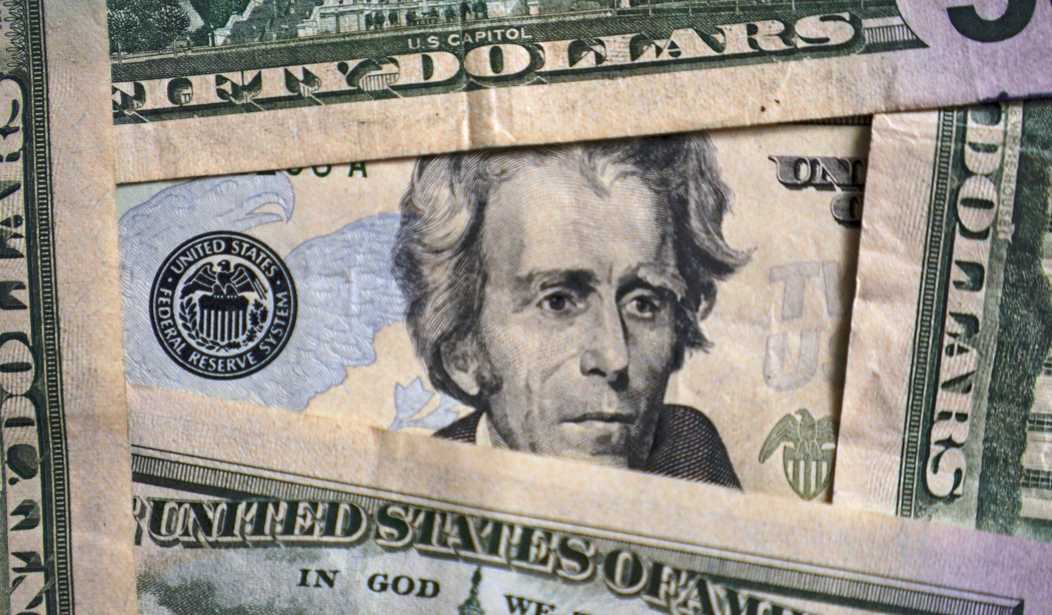Moody's Changes Forecast on US Credit Rating to 'Negative,' on Fears Over DC's Spending Binge
Moody's put out a warning with its latest forecast on the United States' economic future in a new report Friday: get the out-of-control spending under control in Washington, D.C., by any means necessary -- or the nation will lose its stellar credit rating.
The outlook on the credit rating of the United States was changed to “negative” from “stable” on Friday by the ratings firm Moody’s, which pointed to the nation’s worsening fiscal position and political polarization as long-term concerns for America’s economy.[...]
Moody’s suggested on Friday that it did not see an immediate path for the United States to solve its fiscal predicament.
“In the context of higher interest rates, without effective fiscal policy measures to reduce government spending or increase revenues, Moody’s expects that the U.S.’ fiscal deficits will remain very large, significantly weakening debt affordability,” Moody’s said in a statement. “Continued political polarization within U.S. Congress raises the risk that successive governments will not be able to reach consensus on a fiscal plan to slow the decline in debt affordability.”
As you can see there, they put equal importance on "increas[ing] revenues" as a solution to Washington's fiscal problems. The New York Times notes that since that's President Joe Biden and the Democrats' favored solution, it's a "political problem" for 2024:
....[I]t could present a political problem for President Biden, who has been under attack by Republicans over his handling of the economy, including America’s budget deficit. Republicans have been pushing for severe spending cuts to reduce the gap between what America spends and what it earns in tax revenue. Mr. Biden has proposed reducing future deficits by expanding the economy and raising taxes on high earners and corporations.
The report does have a sole silver lining: yes, we still hold the highest rating (for now):
Moody’s said it had declined to downgrade the rating because of the United States’ “formidable credit strengths,” noting the resilience of the economy, the strength of America’s economic institutions and the role of the dollar as the world’s reserve currency.
As we reported in August, Fitch downgraded the U.S. credit rating from “AAA” to “AA+” due to a combination of factors, as my colleague Mike Miller wrote, from
fiscal concerns, a deterioration in governance, political polarization reflected in part by the Jan. 6 Capitol riot, and repeated down-to-the-wire debt ceiling negotiations that threaten the government’s ability to pay its bills.





Post a Comment